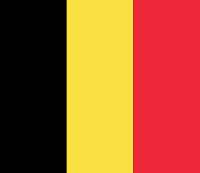On this page you will find Country Profiles for the twenty Euro Area countries. These profiles provide a brief overview of each country in terms of its economy, culture, and society. Be sure to choose one (1) of the below countries to focus your research on.
Austria
Austria has a well-developed ‘social market economy’ with a high standard of living and is closely tied to other EU economies, especially Germany’s. But it faces challenges. (Austria Country Profile)
Belgium
Belgium’s open economy and financial sector made it especially vulnerable to the economic downturn, and the country faces several structural challenges on the road to recovery. (Belgium Country Profile)
Croatia
In January 2023, Croatia became the 20th country in the Euro Area.(Croatia Country Profile)
Cyprus
More than a decade of sustained and strong economic expansion in Cyprus came to an end in 2009 as the global economic crisis took its toll. (Cyprus Country Profile)
Estonia
Estonia’s economy was hit hard during the financial crisis, but it is now recovering, thanks to the economy’s flexibility and governmental decisions. (Estonia Country Profile)
Finland
Finland, a highly open economy, was hard hit by the financial and economic crisis. Structural reforms, especially in the labor market, will help it to regain economic momentum. (Finland Country Profile)
France
The French economy managed to stave off a more severe recession than other advanced economies, but the recovery is fragile and the economy is in need of growth-enhancing and deficit-reducing reforms. (France Country Profile)
Germany
Germany, Europe’s economic engine, is slowly regaining the ground lost in the crisis, but still faces long-term structural challenges. (Germany Country Profile)
Greece
Greece has to undergo significant fiscal adjustment and implement far-reaching reforms to reduce its high deficit, stabilize its debt level, and emerge from the current crisis. (Greece Country Profile)
Ireland
After years of rapid growth, the “Celtic Tiger” was among the European economies hardest hit by the global economic crisis. Recent reforms have put Ireland back on track towards a sustainable economic future, making it a success story in the recovery from the euro. (Ireland Country Profile)
Italy
Following years of slow growth, the economic crisis highlighted Italy’s structural problems, in particular its issues with competitiveness and fiscal discipline. Nonetheless, the country is on a path to recovery. (Italy Country Profile)
Latvia
Latvia joined the euro area in 2014. Latvia’s economy has turned around from a deep contraction during the recent global crisis. (Latvia Country Profile)
Lithuania
Lithuania is one of the 3 Baltic States, and it became a member of the EU in 2004. Lithuanians started using the euro in January 2015. (Lithuania Country Profile)
Luxembourg
The stability of its banks and the productivity of its manufacturing industry sheltered the wealthiest country in the EU from the worst of the financial and economic turmoil of the global crisis. (Luxembourg Country Profile)
Malta
Malta’s economic growth exceeded the euro area average for several years and was led by robust domestic demand and export expansion. The global financial and economic crisis did not spare Malta, but it was one of the least affected countries in the EU. (Malta Country Profile)
Netherlands
The global financial and economic crisis had a deep impact on the Dutch economy due to its trade and financial linkages. (Netherlands Country Profile)
Portugal
The financial crisis highlighted Portugal’s issues with low productivity, weak competitiveness and high public debt. (Portugal Country Profile)
Slovakia
A success story of strong growth led by exports and foreign direct investment, the Slovak economy took a strong hit in the recent crisis. (Slovakia Country Profile)
Slovenia
Due to its dependence on trade, this role model for successful economic liberalization and European integration was impacted in the recent crisis. (Slovenia Country Profile)
Spain
After the Spanish economic miracle ended with the burst of the housing bubble in 2007/2008, Spain’s economy now faces severe challenges. (Spain Country Profile)





















